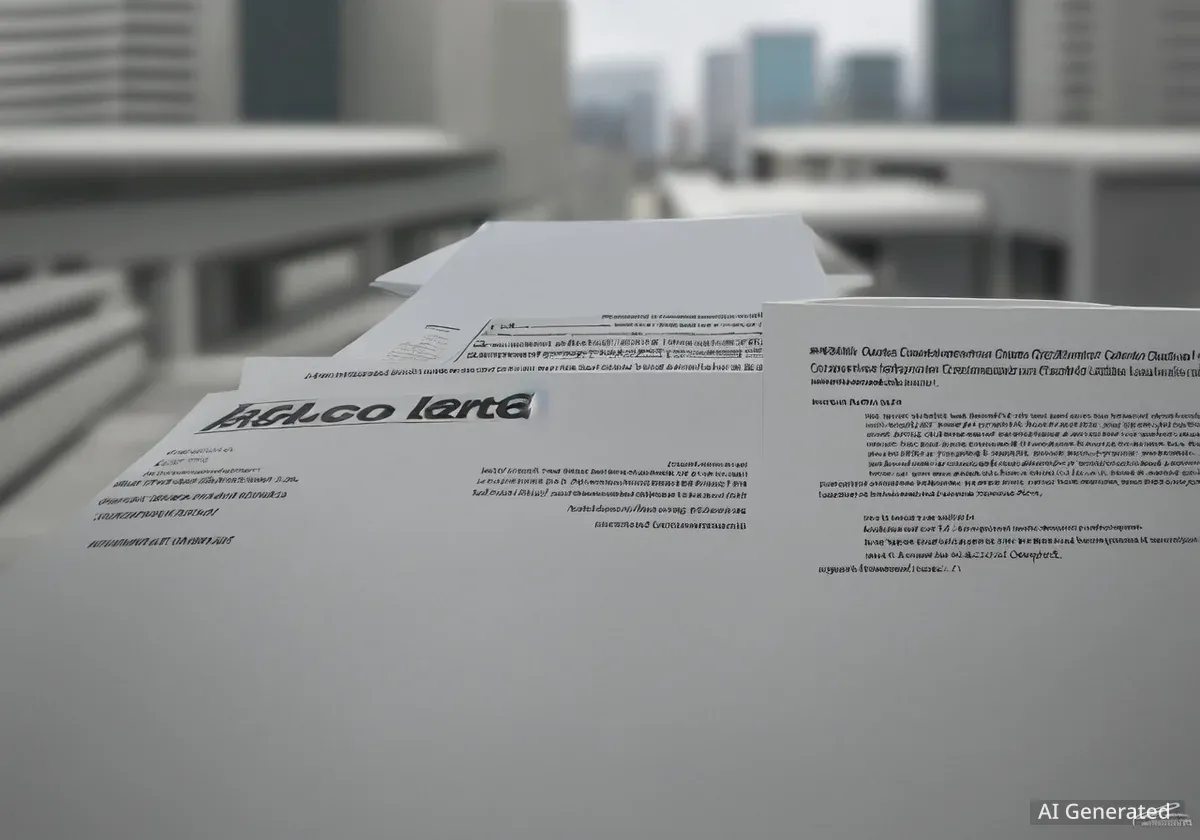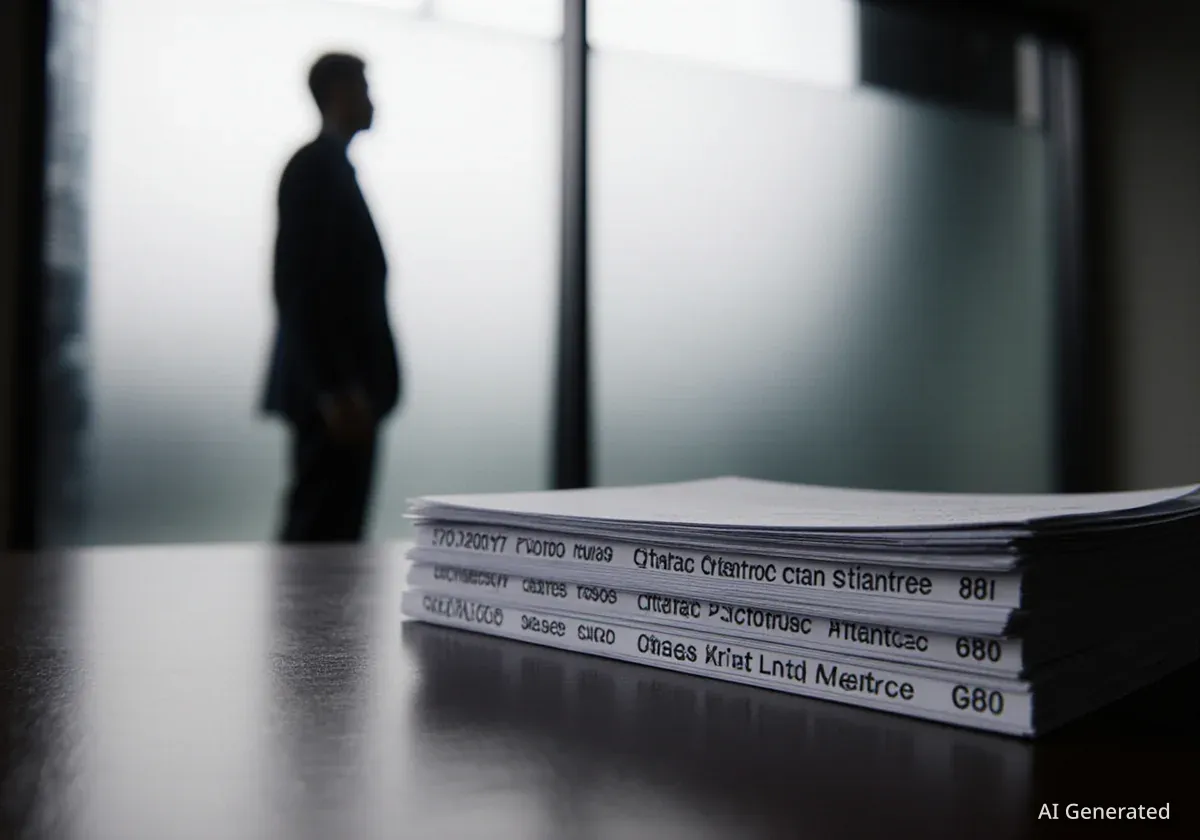A Manchester woman received a federal prison sentence of 30 months for defrauding 24 investors of over $3 million in a real estate scheme. Robynne Alexander, 63, pleaded guilty to one count of wire fraud. The case involved multiple real estate projects across New Hampshire and Massachusetts.
Key Takeaways
- Robynne Alexander was sentenced to 30 months in federal prison.
- She pleaded guilty to one count of wire fraud.
- The fraud scheme impacted 24 investors, resulting in losses exceeding $3 million.
- Alexander misused funds intended for specific real estate projects, including Elm Street properties in Manchester and a former state school site in Laconia.
- Her actions led to significant financial losses for many victims.
Alexander Defrauded Investors in Raxx LeMay LLC
Robynne Alexander, a former real estate investment coach, began her scheme in 2018. She solicited funds from her coaching clients for a New England real estate venture named Raxx LeMay LLC. The purpose of this entity was to buy and renovate two commercial properties located at 1211-1217 Elm Street in Manchester.
Between 2018 and 2021, Alexander raised approximately $2 million from 18 investors. These investors received membership interests in Raxx LeMay. The initial agreement stated that Alexander needed to raise the full $2 million by May 15, 2018, or by the time the property was no longer under agreement, whichever date was later.
Key Investment Details
- Project Name: Raxx LeMay LLC
- Target Properties: 1211-1217 Elm Street, Manchester
- Funds Raised: Approximately $2 million
- Number of Investors: 18
- Initial Deadline: May 15, 2018
The agreement with investors also obligated Alexander to return their money with interest if the minimum required investment amount was not secured by the deadline. However, authorities stated that Alexander did not return the funds. Instead, she used the money for purposes not permitted under the investment terms.
Misuse of Raxx LeMay Funds
On July 27, 2018, Raxx LeMay purchased the Elm Street property. By this date, Alexander had only raised about $700,000. To complete the purchase, she borrowed money from a “hard money lender.” This loan was secured by a mortgage on the property.
What is a Hard Money Lender?
Assistant U.S. Attorney John J. Kennedy explained that a hard money lender is an individual or company, not a traditional bank. These lenders provide loans secured by property, often as short-term bridge loans in real estate. Hard money loans typically carry higher interest rates compared to conventional bank loans.
Despite failing to meet the minimum fundraising target, Alexander did not repay the investors. Instead, she used their funds for unapproved activities. Between July and November 2018, Alexander used investor funds from Raxx LeMay as collateral. This allowed her to draw $1.3 million from a line of credit tied to another entity she owned and controlled.
In September and October 2019, Alexander used a portion of this line of credit to repay at least four investors. These repayments totaled $282,000 and were for projects unrelated to Raxx LeMay. Later, she used Raxx LeMay investor funds to repay the line of credit itself.
Further misuse occurred in July 2021. Alexander used Raxx LeMay investor funds to make payments to two Raxx LeMay investors, totaling approximately $435,000. She also used these funds to cover lender fees and costs for other real estate projects. Additionally, she made a loan to herself or other entities she controlled, amounting to at least $110,000.
"Her crimes hurt a lot of people, and many will likely never be made whole. The defendant’s early acceptance of responsibility and cooperation is commendable which is why the government is seeking a downward variance. But the fact is that her crimes caused significant harm and require a serious sentence," stated Assistant U.S. Attorney John J. Kennedy in his sentencing memorandum.
Loss of Control and Investor Losses in Raxx LeMay
In July 2021, Alexander received $600,000 from a company controlled by two Raxx LeMay investors. In exchange, this company received a 25% ownership stake in Raxx LeMay. This company was also meant to provide general contracting services for the Raxx LeMay project.
The two new investors soon discovered significant issues. Alexander had not maintained proper business records. She was also struggling to make payments to Raxx LeMay’s hard money lender. Furthermore, she could not secure financing for the renovation of the buildings.
As a result, these two investors took control of the Raxx LeMay project. Alexander then agreed to give them an 81% interest in a new entity she had created in July 2021, called Signature on Elm LLC. Alexander retained a 19% interest in this new entity.
In February 2022, Alexander transferred the real estate owned by Raxx LeMay to Signature on Elm. Prosecutors stated that Alexander did not obtain investor approval for this transfer. She also failed to inform the other Raxx LeMay investors about the property transfer to Signature. This action meant Raxx LeMay no longer held any real estate assets. This fact was hidden from the remaining investors, whose investments consequently became worthless.
Out of the 18 investors in Raxx LeMay, only four recovered their investments. The remaining investors lost a total of $850,000.
Fraudulent Activities with 4 Elm Street Project
In late 2019, Alexander began seeking investments for a new real estate project: the renovation of 4 Elm Street. She formed an entity called Four on Elm LLC. She purchased the property after receiving $260,000 from two investors.
Approximately one year later, Alexander created a second entity, Elm and Baker, LLC. This entity was established to accept additional investments for the 4 Elm Street property. Around May 27, 2021, an investor, identified as Victim 1 in court documents, wired $750,000 to an Elm and Baker, LLC bank account. This investment was intended for converting the property into apartments for sale.
The investor was promised the return of their investment plus 25% of the net sale profits. However, Alexander again misused the funds. According to Kennedy, she used about $327,000 to repay two original investors of Four on Elm. Another $170,000 went to repay an unrelated former investor. She also used approximately $45,000 for a personal loan to an individual unrelated to the project. An additional $25,000 was used for loan payments on a different, unrelated project.
Alexander eventually stopped making mortgage payments on the 4 Elm Street property. This led to its foreclosure in the spring of 2023. Victim 1, who invested $750,000, did not learn about the foreclosure sale for nearly a year after it occurred.
The Laconia State School Redevelopment Plan
In November 2022, Alexander signed an agreement with the State of New Hampshire. She acted on behalf of Legacy at Laconia LLC. This agreement involved redeveloping the former Laconia State School and its 217-acre property.
The project's website described a plan to "create a first in the world, innovative, world class resort implementing universal design with barrier free accessibility with an all-in-one sustainable village." Alexander sought $40 million in investments for this project. She offered ownership interests through a separate entity, Legacy at Laconia Fund LLC. Investors would receive equity positions in this fund.
According to Kennedy, no one invested in the fund itself. However, Alexander did receive one investment of $250,000 in Legacy at Laconia – the entity that signed the purchase agreement. This investment came from Victim 2 on October 11, 2023. It was secured by a promissory note, payable at 15% interest by February 15, 2024.
Prosecutors stated that Alexander misappropriated at least $75,000 of these funds. She used the money for payments on other real estate projects, personal living expenses, and nearly $5,000 for personal travel. These travel expenses included trips to Paris, Barcelona, Valencia, Nassau, Florida, and New Orleans in October and November 2023.
Alexander failed to secure financing for the Laconia property. As a result, the state terminated the agreement on April 21, 2023. Victim 2 did not receive any repayment of their investment.
Broader Scope of the Fraud Scheme
Prosecutors confirmed that Alexander's scheme extended beyond these three main projects. It included several other real estate investment opportunities for which she solicited funds. These additional projects included:
- 9 G Street in Hampton
- 9 Cross Street in Somerville, Massachusetts
- 23 Country Club Road in Manchester
- 37 C Street in Manchester
- A group of apartment units in Providence, Rhode Island
In total, Alexander's fraudulent activities involved at least eight investment projects. These projects resulted in losses for at least 24 victims, totaling approximately $3,023,000.
Sentencing and Cooperation
Prosecutors had recommended a sentence of 33 months in prison for Alexander. They noted her quick acceptance of responsibility and full cooperation with the government's investigation. Despite her cooperation, Kennedy emphasized the significant harm caused by her actions.
Alexander continued to solicit funds even when her projects were failing. She used these new investments to pay off old debts, support her personal life, and advance unrelated projects. Her actions caused substantial financial and personal distress to many individuals, many of whom may never recover their losses.





